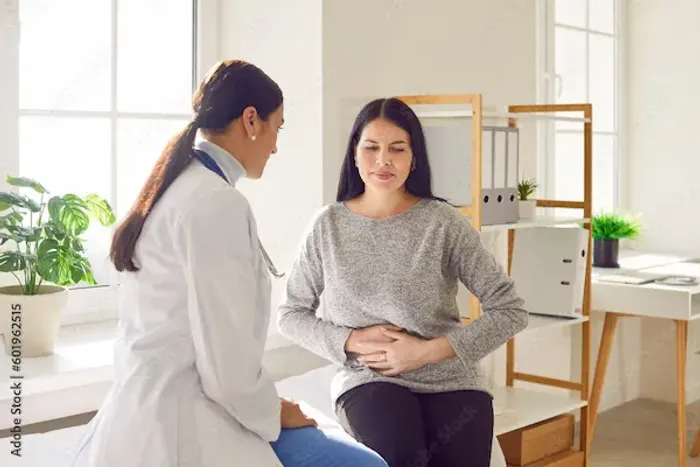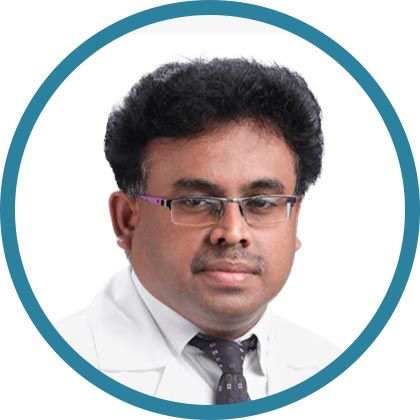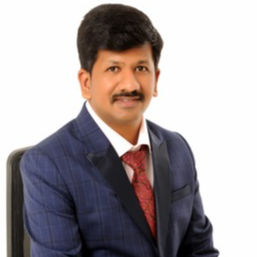Guide to Gastroenterology
Know all about gastroenterology, wha it is, why gut is important, common disorders, symptoms, treatment and lifestyle options and more.


Introduction
Gastroenterology is the medical speciality focused on your digestive system from your mouth and oesophagus to your stomach, intestines, liver, gallbladder, and pancreas. If you’ve ever had heartburn, bloating, constipation, or unexplained belly pain, you’ve already brushed up against the world of gastroenterology. This guide is designed for the general public to make digestive health easy to understand and act on. We’ll explain what gastroenterologists do, the most common symptoms and conditions they treat, the tests and procedures they use like endoscopy and colonoscopy. and the treatments that can help from lifestyle changes and nutrition to advanced therapies. You’ll also find practical tips for prevention and screening, how to prepare for a GI appointment, and what to do if symptoms don’t improve.
Understanding Gastroenterology
Gastroenterology is the branch of medicine dedicated to preventing, diagnosing, and treating disorders of the digestive tract and related organs. That includes the oesophagus, stomach, small intestine, colon, rectum, liver, gallbladder, bile ducts, and pancreas. If you think of your body as an energy system, the digestive tract is how raw materials are converted into fuel, and the liver and pancreas are the “control centres” that regulate processing and metabolism. When these systems falter, symptoms can be subtle like fatigue or mild reflux or dramatic such as bleeding or severe abdominal pain.
Gastroenterology vs. hepatology vs. colorectal surgery: Gastroenterologists manage medical conditions of the GI tract; hepatologists specialise further in liver diseases like hepatitis, fatty liver, or cirrhosis; colorectal surgeons perform operations such as removing tumours or repairing bowel problems. Many digestive issues are handled by a gastroenterologist, who collaborates with surgeons when procedures beyond endoscopy are needed.
Consult a Top Gastroenterologist for Personalised Advice
Why the gut matters
The intestine houses much of our immune system and a complex community of microbes, the gut microbiome. Early research suggests links between the microbiome and conditions ranging from IBS to obesity and even mood disorders. While science is evolving, it underscores why digestive health influences overall wellness.
Escalate into bigger problems. Small, consistent habits often beat drastic overhauls.
What Gastroenterologists Do
A gastroenterologist is a physician who completes medical school, internal medicine residency, and a gastroenterology fellowship often 5–6 combined years of speciality training after medical school. Many also undertake additional training in subspecialties, including:
- Hepatology (liver disease, transplant medicine)
- Inflammatory bowel disease (IBD) care
- Gastrointestinal motility (conditions like gastroparesis)
- Advanced endoscopy (ERCP, EUS, endoscopic tumour removal)
- Pancreaticobiliary disease
How GI doctors work with your primary care clinician
Your primary care doctor often initiates evaluation for symptoms like heartburn or altered bowel habits. If symptoms persist or red flags appear, you’ll be referred to a GI specialist. Gastroenterologists perform procedures (e.g., endoscopy, colonoscopy), interpret specialized tests (such as pH monitoring or manometry), and guide long-term therapy for chronic conditions like GERD, IBD, or celiac disease. For liver diseases, they coordinate imaging, labs, and treatments, and work with transplant teams if needed [2].
Symptoms: When to See a GI Specialist
The symptoms include:
Common symptoms
Heartburn or chest burning after meals, bloating, nausea, abdominal pain, diarrhoea, constipation, unexplained weight
changes, and changes in stool like colour, frequency, calibre. While many are benign and self-limited, patterns matter:
persistent symptoms beyond two to four weeks, nighttime symptoms, or symptoms that affect your daily function
deserve evaluation .
Red flags: Seek prompt care for any of the following:
- Trouble swallowing or food getting “stuck”
- Unintentional weight loss
- Blood in stool or black, tarry stools
- Persistent vomiting
- Severe, constant abdominal pain
- Iron deficiency anaemia
- New symptoms after age 50 without a clear cause
When home care is enough vs. when to get help: For mild heartburn, try smaller meals, avoid late eating, and reduce
trigger foods like spicy, fatty, alcohol. For constipation, increase fibre gradually to 25–35 g/day and drink more water.
If symptoms persist beyond two weeks, consult a doctor online with Apollo24|7 for further evaluation. And if you
notice red flags like bleeding or trouble swallowing, book a physical visit to a doctor with Apollo24|7 or seek urgent
care.
Conditions Treated in Gastroenterology
Reflux and ulcers: GERD is chronic acid reflux that can damage the oesophagus, cause cough or hoarseness, and disrupt sleep. H. pylori, a common stomach bacterium, can cause gastritis and peptic ulcers; nonsteroidal anti-
inflammatory drugs (NSAIDs) are another frequent cause. Eradication therapy for H. pylori and acid suppression
reduces ulcer risk and bleeding .
IBS vs. IBD
Irritable bowel syndrome (IBS) is a functional disorder featuring abdominal pain related to bowel habits, often with
bloating; it does not cause inflammation or damage. Inflammatory bowel disease (IBD) includes Crohn’s disease and ulcerative colitis autoimmune conditions that inflame the GI tract and can lead to complications like strictures and increased colorectal cancer risk. Treatments differ greatly: IBS focuses on diet, stress reduction, and select medications; IBD often requires anti-inflammatory or immune-modulating therapies, including biologics.
Celiac disease and food intolerances
Celiac is an autoimmune reaction to gluten that damages the small intestine; diagnosis requires specific blood tests and often a biopsy while still consuming gluten. Lactose or FODMAP intolerances are not autoimmune but can cause distressing symptoms; they’re managed with targeted dietary changes rather than immune therapies.
Gallbladder, pancreas, and liver
Gallstones can trigger biliary colic or pancreatitis. The pancreas plays a key role in digestion and blood sugar regulation; pancreatitis often presents with severe upper abdominal pain. Liver conditions range from viral hepatitis to nonalcoholic fatty liver disease (NAFLD), now a leading cause of chronic liver disease worldwide.
Tests and Procedures You Might Encounter
Endoscopy and colonoscopy: Upper endoscopy (EGD) visualises the oesophagus, stomach, and duodenum to evaluate ulcers, bleeding, celiac disease, or GERD complications. Colonoscopy examines the colon and rectum for polyps, cancer, inflammation, and bleeding sources. Removal of polyps during colonoscopy can prevent colorectal cancer. Sedation and careful monitoring make these procedures safe for most people.
Advanced procedures:
- ERCP (endoscopic retrograde cholangiopancreatography): Combines endoscopy and X-ray to diagnose and treat bile duct or pancreatic duct problems (e.g., gallstones, strictures).
- EUS (endoscopic ultrasound): Ultrasound via endoscope to evaluate lesions or stage cancers and guide fine-needle biopsies.
- Capsule endoscopy: A swallowable camera captures images of the small intestine, useful for obscure bleeding or suspected Crohn’s.
- Functional tests:
- pH monitoring and oesophagal manometry: Assess reflux severity and oesophagal motility in chronic symptoms or
before surgery. - Anorectal manometry: Evaluates pelvic floor function for constipation or incontinence.
- Lab and noninvasive tests:
- Stool tests (e.g., faecal immunochemical test for colon cancer screening, calprotectin for intestinal inflammation)
- Breath tests (e.g., hydrogen/methane for small intestinal bacterial overgrowth; urea breath test for H. pylori)
- Blood tests (e.g., celiac serologies, liver panel)
If lab tests are recommended, Apollo24|7 offers convenient home collection for tests like vitamin D, iron studies,
HbA1c, and H. pylori stool antigen.
Treatments: From Lifestyle to Advanced Therapies
Lifestyle foundations: For GERD, elevate the head of your bed, avoid late-night meals, and limit trigger foods such as
alcohol, caffeine, chocolate, mint) while focusing on balanced, smaller meals. For constipation, increase soluble fibre
like oats, psyllium, kiwi and fluids, and build a daily “bathroom routine” after breakfast when the colon is most active. Gentle exercise like walking) supports motility.
Medications
Acid reducers (PPIs and H2 blockers) ease GERD and ulcer healing; antibiotics eradicate H. pylori. Antispasmodics,
gut-directed neuromodulators, and peppermint oil can help IBS symptoms. For IBD, treatments range from aminosalicylates and steroids to immunomodulators and biologics; therapy is individualised to disease severity and location. In chronic constipation or diarrhoea, targeted agents for e.g., secretagogues, bile acid binders may be used. Always review medication side effects and interactions with your clinician.
Endoscopic/surgical options
Polyps are removed during colonoscopy to prevent cancer; endoscopic mucosal resection can remove certain early cancers. For refractory GERD, surgical or endoscopic anti-reflux procedures may be considered. Gallbladder removal (cholecystectomy) may be recommended for symptomatic gallstones; severe pancreatitis or complications may require advanced interventions.
If your condition does not improve after trying these methods, book a physical visit to a doctor with Apollo24|7 for personalised evaluation.
Nutrition in GI Care
Fibre, fluids, and low FODMAP: Most people benefit from 25–35 grams of fibre daily, emphasising soluble fibre for gentler digestion. Increase slowly to avoid gas and bloating. Adequate hydration (urine pale yellow) helps fibre work.
For IBS, a structured low FODMAP diet which temporarily reducing fermentable carbs, followed by reintroduction can
lessen gas, abdominal pain, and diarrhoea. Work with a dietitian to avoid over-restriction and ensure nutritional adequacy.
Probiotics and the microbiome: Some probiotics may help IBS or antibiotic-associated diarrhoea; benefits are strain-specific and modest. Prebiotics (fibre that nourishes good bacteria) come from foods like onions, garlic, bananas, oats, and legumes. A “food first” approach which is diverse, plant-forward eating supports a resilient microbiome. The science around personalised probiotics and microbiome tests is evolving and not yet standard care.
Practical plate-building:
- Half plate: colourful vegetables and some fruit
- Quarter plate: whole grains or starchy vegetables
- Quarter plate: lean proteins (fish, poultry, tofu, legumes)
- Add healthy fats like olive oil, nuts and fermented foods like yoghurt, kefir as tolerated
Screening and Prevention
Colorectal cancer screening: Most adults at average risk should begin screening at age 45 and continue until 75, using
options such as colonoscopy (every 10 years if normal), annual FIT faecal immunochemical test, or stool DNA testing at recommended intervals. Screening earlier or more often is advised for those with higher risk (family history, IBD). Removing precancerous polyps during colonoscopy reduces cancer risk and mortality.
Vaccinations and prevention: Vaccines for hepatitis A and B protect the liver; ask your clinician if you’re a candidate, especially if you have chronic liver disease, diabetes, or certain exposure risks. Limit alcohol, maintain a healthy weight, and manage diabetes to lower the risk of NAFLD and cirrhosis. Avoid unnecessary NSAIDs if you have an ulcer risk.
Everyday habits that lower GI risk:
- Don’t smoke
- Eat a plant-forward diet rich in fibre
- Move regularly and maintain a healthy waist circumference
- Manage reflux triggers and avoid late-night meals
- Treat H. pylori when present.
Living Well with a Digestive Condition
Travel and social life: Pack your “GI go-bag” your usual medications, rehydration salts, a fibre supplement, and low FODMAP snack options. Identify restrooms in advance. In restaurants, order simply prepared dishes and request sauces on the side.
Gut–brain axis says that tress and anxiety can amplify gut symptoms via bidirectional signalling between the brain and GI tract. Gut-directed cognitive behavioural therapy, mindfulness, diaphragmatic breathing, and gentle movement like e.g., yoga, walking reduce symptom flares in IBS and functional GI disorders.
Tracking symptoms and triggers can be done by keeping a simple diary recording meals, stress, sleep, bowel movements (frequency and form), and symptoms. Look for patterns rather than one-off events. If symptoms persist beyond two weeks despite self-care, consult a doctor online with Apollo24|7 for further evaluation and potential testing.
Conclusion
Your digestive system is central to how you feel, function, and thrive. Gastroenterology brings together science, procedures, and everyday habits to prevent disease, diagnose problems accurately, and personalise treatment. For many people, modest lifestyle steps steady fibre intake, hydration, movement, sleep, and stress management ease common symptoms like reflux or constipation. When symptoms persist or red flags appear, modern tests and procedures, from noninvasive stool screening to colonoscopy and advanced endoscopy, help find answers and guide care.The most important step is the next one: notice your patterns, try a small change, and partner with a clinician who can tailor care to your needs. If symptoms last beyond two weeks or affect your quality of life, consult a doctor online with Apollo24|7 for guidance and to determine if in-person evaluation or testing is needed.
Consult a Top Gastroenterologist for Personalised Advice
Consult a Top Gastroenterologist for Personalised Advice

Dr. Chethan T L
General Physician/ Internal Medicine Specialist
5 Years • MBBS, MD, DNB (General Medicine)
Bengaluru
Apollo Medical Center, Marathahalli, Bengaluru

Dr. Jatin Yegurla
Gastroenterology/gi Medicine Specialist
11 Years • MD (PGI), DM (AIIMS Delhi), FAGIE (AIIMS Delhi), ESEGH (UK), Gold Medalist
Hyderabad
Apollo Hospitals Jubilee Hills, Hyderabad
(650+ Patients)

Dr Bhargav Vuppumalla
General Physician/ Internal Medicine Specialist
5 Years • MBBS MD GENERAL MEDICINE
Bengaluru
Apollo Medical Center, Marathahalli, Bengaluru

Dr. Arun N
Gastroenterology/gi Medicine Specialist
17 Years • MBBS, DNB PED , DM GASTRO
Chennai
Apollo Hospitals Greams Road, Chennai

Dr Harish K C
Gastroenterology/gi Medicine Specialist
15 Years • MBBS MD DM MRCP(UK) (SCE-Gastroenterology and Hepatology)
Bangalore
Manipal Hospital, Bangalore
Consult a Top Gastroenterologist for Personalised Advice

Dr. Chethan T L
General Physician/ Internal Medicine Specialist
5 Years • MBBS, MD, DNB (General Medicine)
Bengaluru
Apollo Medical Center, Marathahalli, Bengaluru

Dr. Jatin Yegurla
Gastroenterology/gi Medicine Specialist
11 Years • MD (PGI), DM (AIIMS Delhi), FAGIE (AIIMS Delhi), ESEGH (UK), Gold Medalist
Hyderabad
Apollo Hospitals Jubilee Hills, Hyderabad
(650+ Patients)

Dr Bhargav Vuppumalla
General Physician/ Internal Medicine Specialist
5 Years • MBBS MD GENERAL MEDICINE
Bengaluru
Apollo Medical Center, Marathahalli, Bengaluru

Dr. Arun N
Gastroenterology/gi Medicine Specialist
17 Years • MBBS, DNB PED , DM GASTRO
Chennai
Apollo Hospitals Greams Road, Chennai

Dr Harish K C
Gastroenterology/gi Medicine Specialist
15 Years • MBBS MD DM MRCP(UK) (SCE-Gastroenterology and Hepatology)
Bangalore
Manipal Hospital, Bangalore
More articles from General Medical Consultation
Frequently Asked Questions
1) What does a gastroenterologist do?
gastroenterologist diagnoses and treats digestive system conditions, performs procedures like endoscopy and colonoscopy, and helps with long-term management of issues such as GERD, IBS, IBD, and liver disease. They’re the digestive health specialist to see when symptoms persist.
2) When should I see a gastroenterologist?
See a GI for ongoing heartburn, chronic diarrhoea or constipation, abdominal pain, difficulty swallowing, unexplained weight loss, blood in the stool, or if you need colorectal cancer screening. If symptoms persist beyond two weeks, consult a doctor online with Apollo24|7.
3) What is the recommended colonoscopy screening age?
For average-risk adults, start colorectal cancer screening at age 45. Options include colonoscopy every 10 years (if normal), annual FIT stool tests, or other recommended methods. Your GI will help choose the best test for you.
4) How is IBS different from IBD?
IBS is a functional disorder with abdominal pain and bowel changes, but no intestinal damage. IBD (Crohn’s disease, ulcerative colitis) causes inflammation and can damage the GI tract, needing anti-inflammatory or immune therapies. Diagnosis and treatments differ.
5) Are probiotics helpful for gut health?
Some probiotics can help with IBS or antibiotic-associated diarrhoea, but effects are strain-specific and modest. A diverse, fibre-rich diet often supports the microbiome better long-term. Discuss options with your clinician; avoid one-size-fits-all claims.




